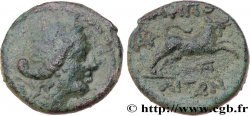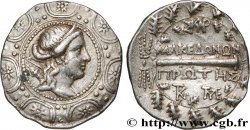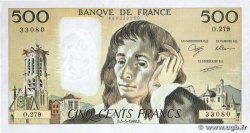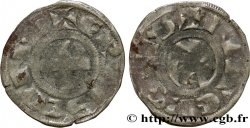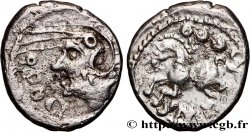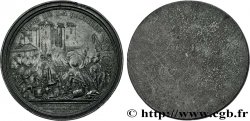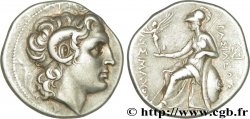v53_0040 - MACEDONIA - AMFIPOLIS Tétradrachme stéphanophore
MONNAIES 53 (2012)
Начальная цена : 580.00 €
Назначить цену : 950.00 €
Цена реализации : 580.00 €
Начальная цена : 580.00 €
Назначить цену : 950.00 €
Цена реализации : 580.00 €
Тип Tétradrachme stéphanophore
Дата: c. 150 AC.
Монетный двор / Город: Macédoine, Amphipolis
Металл: silver
Диаметр: 31 mm
Ориентация осей монеты: 11 h.
Вес: 16,44 g.
Редкость: R1
Комментарии о состоянии
Exemplaire sur un flan large et ovale bien centré des deux côtés. Beau portrait de haut relief. Joli revers, de style fin, bien venu à la frappe, servi par une patine grise de collection ancienne avec des reflets dorés
Ссылки в каталоге: :
Происхождение:
Cet exemplaire provient de MONNAIES 31, n°48 et de la collection Claude Lainé (emblème luni-solaire)
Лицевая сторона
Аверс: легенда: ANÉPIGRAPHE.
Аверс: описание: Buste diadémé et drapé d'Artémis Tauropolos à droite, l'arc et le carquois sur l'épaule, placé au centre d'un bouclier macédonien orné d'étoiles.
Обратная сторона
Реверс: Описание: Légende de chaque côté d'une massue ; au-dessus, un monogramme.
Реверс: легенда: MAKEDONWN // PROTHS// (SAUHR)/ (TKo)/ (MTE)
Реверс: перевод: (Macédoine première).
Комментарий
Les auteurs de l’AMNG avaient recensé seize exemplaires pour cette variété. Nous remarquons en particulier le petit monogramme TKp et un monogramme (MTE) référencé sous le numéro 15 conservé au Kunsthistorisches Museum de Vienne. Au droit, sur le bouclier macédonien, le buste d’Artémis est entouré d’une frise de sept motifs formés à partir d’une combinaison luni-solaire associant un double croissant de lune superposé et d’un astre solaire avec huit rais centré d’un globule.








 Cообщить об ошибке
Cообщить об ошибке Распечатать страницу
Распечатать страницу Отправить мой выбор
Отправить мой выбор Задать вопрос
Задать вопрос Consign / sell
Consign / sell
 Информация
Информация
